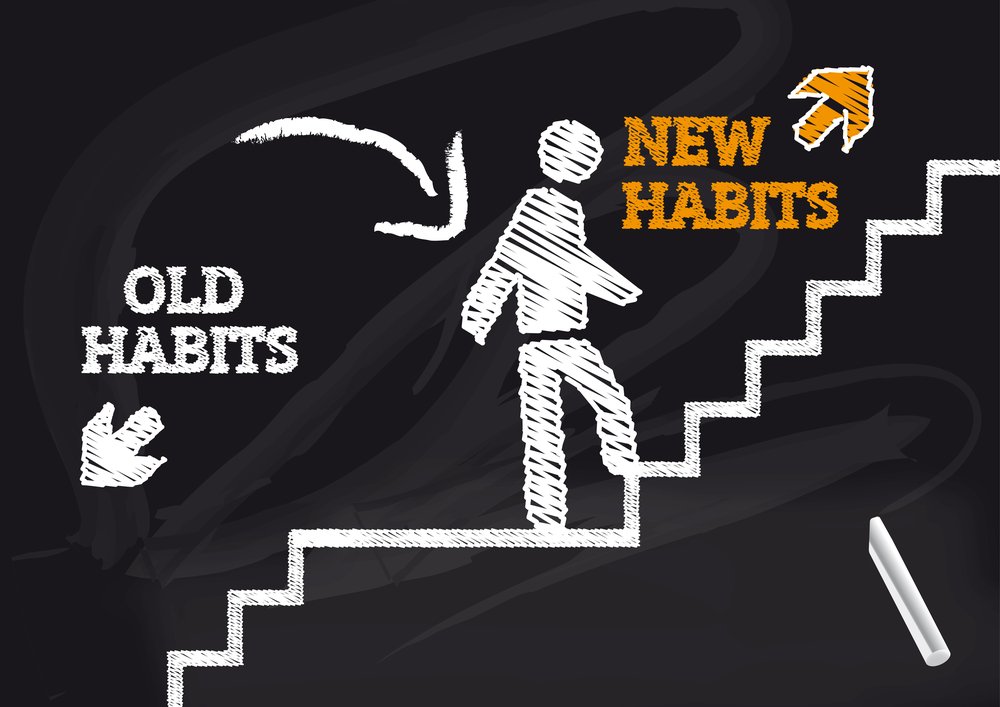Want to be successful? then avoid these 7 habits. Today, we are going to learn about 7 habits that can destroy your future if you don’t change them.
Perfectionism

People commonly make the mistake of thinking that you have to do things perfectly to be productive but perfectionism often hurts your work far more than it helps. Most of the time perfectionism has nothing to do with how much you actually care about your work. Instead, it comes from a fear of failure. You work overtime to make sure every little detail is absolutely perfect because you’re scared your work isn’t going to be good enough if you leave it as is but all that time and effort you wasted reviewing the same details over and over could have been used to finish the entire project and get started on a new one. Perfectionism can also affect the quality of your work because of the unrealistic standards you’re holding yourself to. If you were expecting to do something perfectly and it doesn’t work out that way you might mentally give up on the project from then on you might only put in the minimal effort because what’s the point of even trying when you know it isn’t going to turn out how you want. This mentality is all too common for perfectionists and makes it especially difficult to stay motivated.
So what should you do instead of focus on doing enough to simply complete a project even if it isn’t the quality that you want? Let’s say you’re trying to write a book all you’ve written over the last month is a single page because you keep going back to edit and change every tiny detail. That one page might be absolutely amazing but someone who is focused on completing instead of perfecting would have already had 50 pages done by now. By finishing the bulk of the project first you get the hard work out of the way so that you can go back and change the small stuff afterward.
Comparing

Comparisons are unhealthy in all sorts of ways from lowering your self-esteem to ruining your relationships. When it comes to motive and productivity comparisons often stop you from taking important steps towards your goals. Leaving you feeling insecure or intimidated by all the people who are doing better than you. Don’t make the mistake of belittling your own aspirations just because you don’t have as much money confidence or authority as someone else. If they have something you want try to figure out how they got there then plan out how you can do the same thing. There’s nothing wrong with learning from people you admire as long as you don’t let their successes stand in the way of your own.
Waiting to work

Waiting for the perfect time to work is easily one of the more common and effective forms of procrastination because of how easy it is to justify. Imagine you have to work on a huge project, you know it’s going to take you at least 3 or 4 hours so your plan is to sit down and knock it out in one sitting but then you realize you’re getting hungry so you decide to wait until after lunch to get started, then after lunch you remember that you forgot to do a couple of chores, so you tell yourself that you’ll get to work right after you finish those. You end up doing the same thing over and over until there isn’t any time left in the day to get your work done. If this sounds like you it’s crucial that you start establishing a routine that will force you to start and stop working at the same time every day. Over time your body and mind will get so used to working on a schedule that you won’t feel the need to procrastinate.
Multitasking

In theory, multitasking sounds like a great idea if you do two or more things simultaneously you’re not only saving time but you’re also doubling your productivity, right? Lots of people make this same mistake every day because truly efficient multitasking is almost impossible. As a species, humans are built to focus on one thing at a time. In fact, even when we think we’re multitasking we’re really just alternating our attention between a few different things not focusing on multiple things together. Think about the last time you ate a meal while watching TV. These are both extra simple activities yet it is incredibly common for people to accidentally overeat while the TV is on. This is because they’re only paying attention to one thing so the less entertaining of the two ends up falling by the wayside texting and driving is outlawed in so many states for the exact same reason. Even if you think you can do both at the same time you’re actually pulling your attention away from one thing to do the other.
So how does this relate to motivation and productivity? Well, imagine you need to respond to some emails and work on a presentation you really want to finish as quickly as you can so you decide to multitask. Not only does this consume a lot of extra energy but you’ll also end up producing sloppy work. Your emails might be filled with spelling errors or your presentation might be missing a few slides because you were too busy thinking about the other task to notice. Multitasking also impedes your ability to solve complex problems and think deeper about specific subjects which both require intense concentration. Unlike attention, concentration isn’t something you can move back and forth so when you’re multitasking you usually fail to concentrate on anything.
The best solution is to stop multitasking but if you insist on doing it you can make the transitions a bit easier on your brain by grouping similar tasks together. That way when you do suddenly jump to something new your brain won’t have to completely shift gears.
Allowing distractions

Do you make a habit of leaving the TV on? While you work or maybe you like to do homework while your friends are around. This might sound like more entertaining ways to get some boring work done but they can be detrimental to motivation and productivity. Like multitasking, these distractions force your mind to try to concentrate on two or more things at once but they actually take things one step further. If you’ve made a habit of being lazy or unmotivated then your mind is going to be searching for ways to avoid working. When you leave the TV on you’re giving your mind an excuse to prioritize something easy and fun. While ignoring the stuff that’s hard or tedious. You might be thinking what if I just don’t look at the TV or turn the volume down, unfortunately, it isn’t that easy.
The average person’s mind tends to wander anywhere between twenty and forty percent of the time. Even when we’re working our hardest keeping 100% of your attention on one thing can take years of practice and self-discipline. So it’s pretty likely that your mind is going to wonder at least a little bit. When it does you will be much more vulnerable to distractions. So if you hear your friends talking about something funny in the background you’ll end up paying more attention to them than the work you’re supposed to be doing. This is especially common with what is called sensory distractions which steal your attention by activating at least one of your senses. These distractions can be anything from music with lyrics to a loud garbage truck out your window. Even the smallest sensory distractions can completely throw off your workflow which is why so many people prefer to work in libraries or while wearing soundproof headphones. The more you can isolate yourself from these distractions. The more productive and motivated you will be.
Saying “Yes”

You might be having trouble staying motivated because you’re so focused on doing what everybody else wants you to do that you’re neglecting your own goals. If you’re looking to be more social or get out of your shell then being a yes-man is a step in the right direction but don’t be surprised when you end up with less time for your own projects. When you agree to help someone you’re not just committing to an hour or two of work for them you’re giving up valuable time effort and thought. You’re putting them on your to-do list and letting their work crown your brain which leaves less space for the things you need to do for yourself.
So to make sure you stay motivated and focused learn how and when to say no. It can be challenging to overcome the social pressures to help people when they ask you for it but they will respect you more if you’re open and honest about your priorities. Learning to say no also has the added bonus of fostering confidence and self-assurance. So don’t be afraid to let people know that you value your own time.
Indecisiveness

Being calm and decisive takes quite a bit of practice but having confidence in your decisions makes you significantly more motivated to work hard and exceed expectations. If you don’t feel confident you often end up wasting time because you’re too bogged down by what-ifs and useless anxiety. When you finally do make a decision you’ll end up performing worse because in the back of your mind you’re always wondering if you made the wrong choice. To make sure you don’t get trapped in this vortex of self-doubt try putting a time limit on your decisions. If it’s something small give yourself only a couple minutes to sort through the pros and cons. If you still can’t decide by the time limit, just go with your gut by giving yourself a rigid deadline you can stop yourself from standing in your own way.



